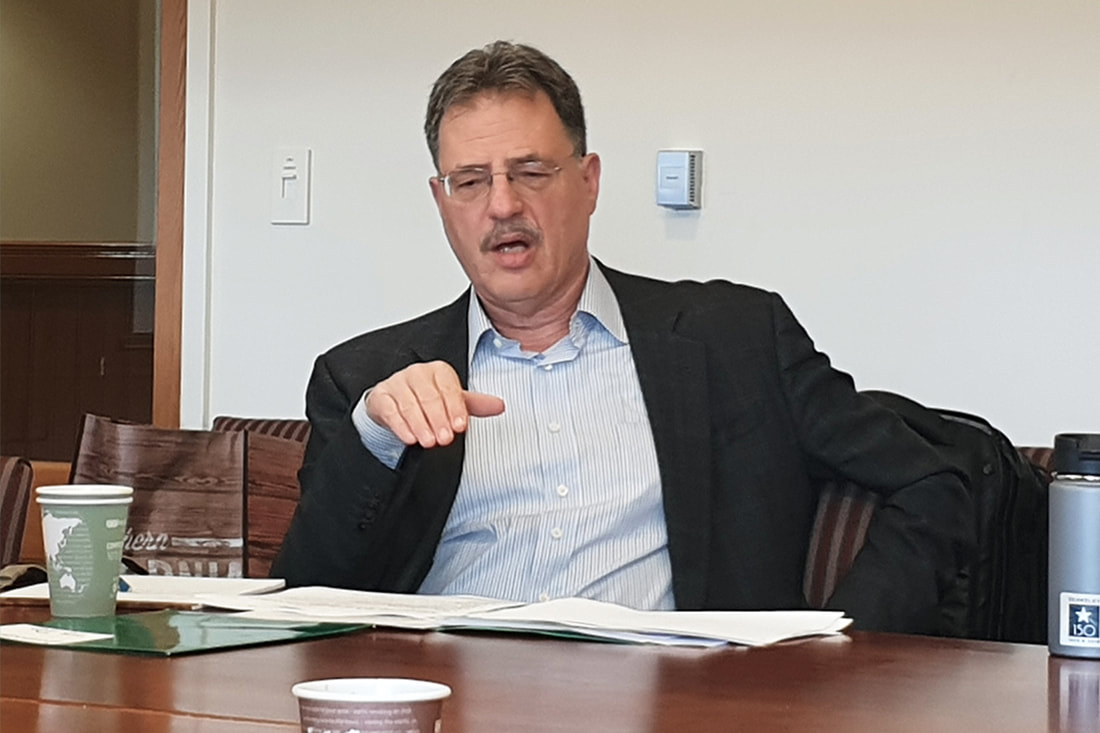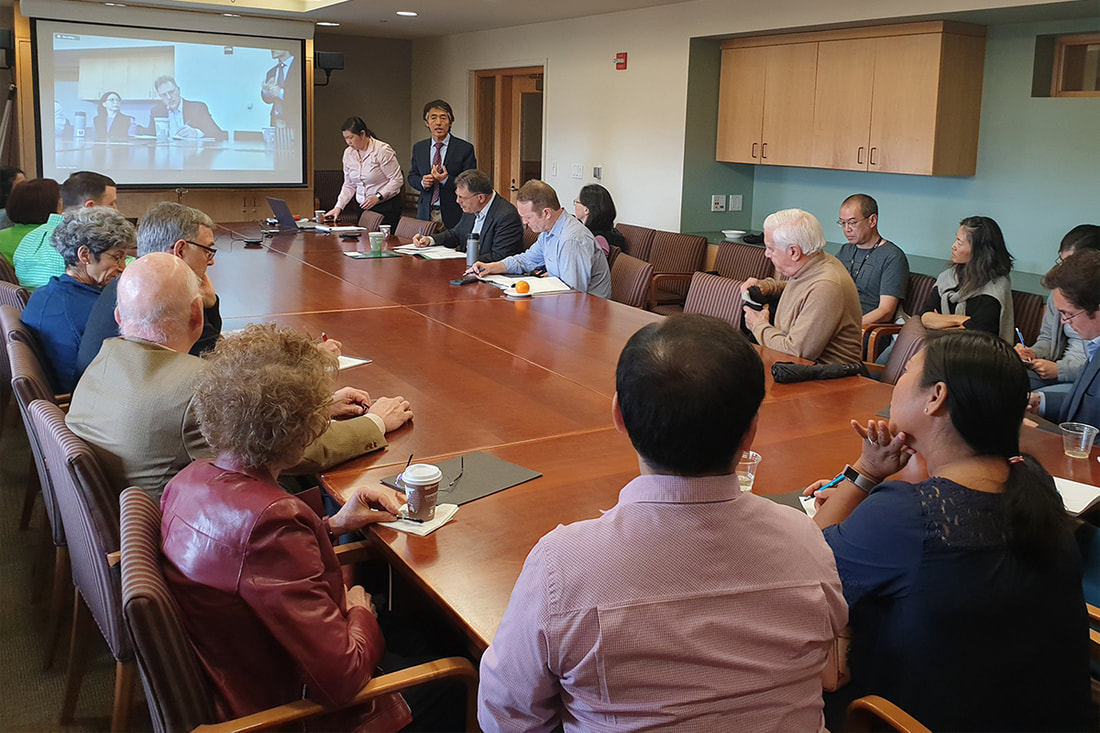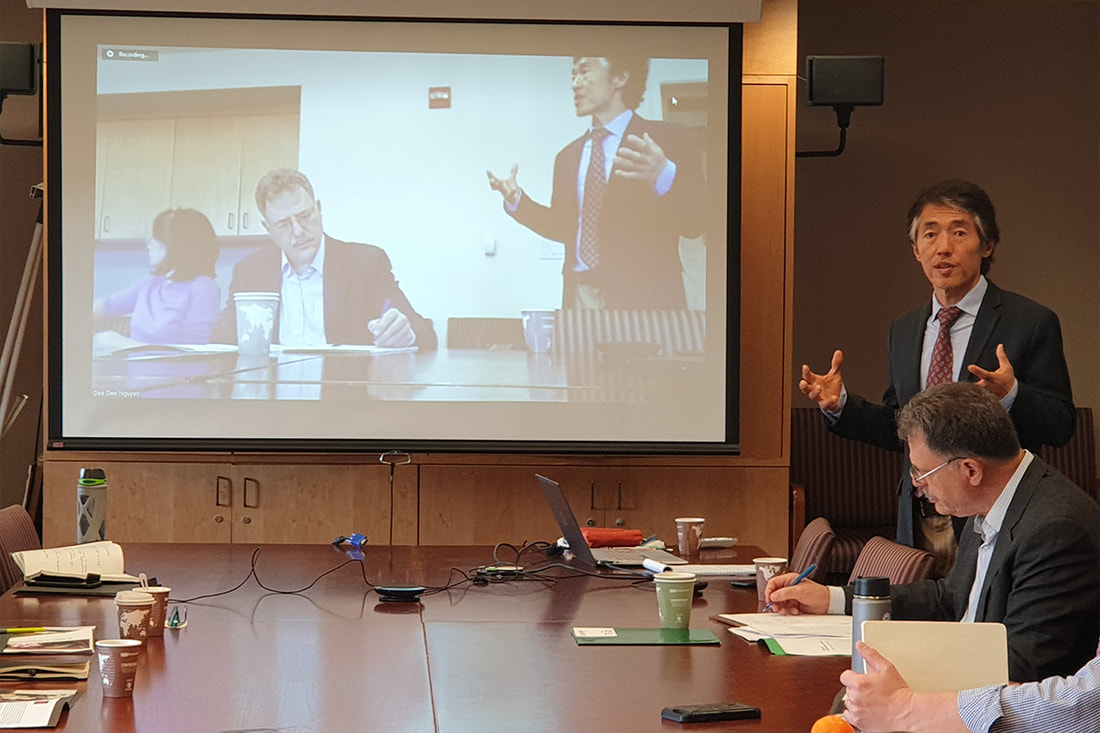Professor Larry Diamond Discusses Democracy in Myanmar at CPI’s Inaugural ‘Speaker Series’ Event4/21/2019
On April 4, 2019, the Board of Directors of Community Partners International (CPI) welcomed Professor Larry Diamond, Senior Fellow at the Hoover Institute and at the Freeman Spogli Institute for International Studies at Stanford University, to give a talk on ‘Democracy and Myanmar’. Professor Diamond’s talk is part of an ongoing Speaker Series in which CPI’s Board hosts thought leaders, entrepreneurs, academics and public figures in conversation with donors and community supporters. The talk took place at Stanford University’s Encina Hall. Alongside CPI’s Board, 20 invited guests attended Professor Diamond’s talk in person and via webcast. In his talk, Professor Diamond reflected on the profound challenges facing Myanmar as the country seeks to democratize after tentatively emerging from more than five decades of military rule. Using comparative examples from across Asia, he highlighted the difficulties of such transitions in political systems that have historically lacked the institutions, governance structures, rule of law and political culture that promote accountability and faithfulness to the public interest. Professor Diamond explored the specific political and constitutional circumstances in Myanmar that have enabled the military to maintain significant and entrenched political power despite losing the 2015 general election, and the challenge this poses to achieving further progress in democratization. He underlined that the country continues to bear traumatic scars from the long period of military rule, and deep-rooted systems of exploitation, which will take many years to overcome. While acknowledging the enormous progress made in terms of the holding of elections and formation of a democratically elected government, he stressed that unless there were dramatic changes he did not think it likely that the parliament system in Myanmar would be able to amend the constitution and reduce the formal role of the military in the political system in the foreseeable future. He placed this observation in the wider international context where “democracy is in retreat generally around the world, [and] international pressure for progress toward democracy, fidelity to democracy, human rights and constitutional norms is [also] in retreat.” Professor Diamond noted that “the Asia barometer surveys we’ve done show pretty widespread popular support for democracy as the best form of government,” but that “democracy is not well understood among many citizens in Myanmar. So when you get below the surface, there isn’t a lot of understanding yet of the deeper structure of liberal democracy is in terms of constraints on the power of rulers, and in terms of tolerance for minorities.” Professor Diamond emphasized that were a number of positive developments taking place in the political context in Myanmar: “There is a more pluralistic, more active civil society that has emerged. Parliament is full of creative, dedicated, long-committed human rights, civil society and democracy advocates. Another good thing is that civil society is beginning to be populated with some independent analytic centers, newspapers and [other] sources of information.” He stressed that these developments could help to bring creative solutions to the practical challenges facing Myanmar and that building trust and engagement between the military and civil society will be important for progress “so that Myanmar can create a new political culture of trust and interaction that might eventually {lead to] to gradual democratizing reforms”. During the question and answer session that followed his talk, Professor Diamond reflected on whether international organizations should continue to work in Myanmar in light of the circumstances surrounding the Rohingya refugee crisis.
“The health of marginalized people should not be held hostage to the bad behavior of their government. So I think wherever you can get in and do good work to help people, it’s worth doing. You can’t get the access and really implement programs without cooperating with the government at some level.” However, he stressed that international organizations working in Myanmar should be careful to avoid legitimizing actions by elements of the government that violate human rights. “It is a system in transition in some ways and so the more international actors that are in there doing practical work and trying to set new standards of behavior and implementation, that’s going to push the transition in a better direction.” CPI will continue to organize these Speaker Series events in various formats including briefings, panels, interviews and lectures, to discuss and promote critical, analytical and thought-provoking discourse regarding society, politics, emerging and current issues in Asia, with a particular focus on Myanmar and Bangladesh. The views and opinions expressed by Professor Diamond in this talk do not necessarily reflect those of Community Partners International. Comments are closed.
|
AuthorCPI Admin Archives
July 2024
Categories
All
|
|
|
COMMUNITY PARTNERS INTERNATIONAL
580 California St Fl 16, Ste 1658, San Francisco, CA 94104-1068, USA [email protected] +1 510 225 9676 We are a registered nonprofit 501(c)(3) Public Charity. TAX ID 94-3375666 |
©
Community Partners International




 RSS Feed
RSS Feed
